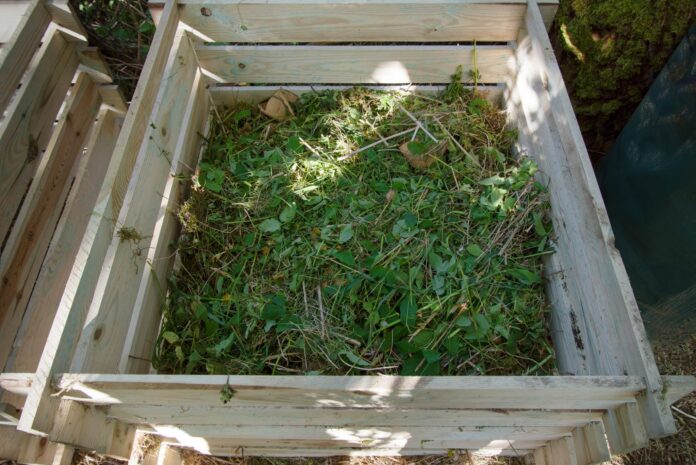
AUBURN UNIVERSITY, Ala. – Composting is often associated with the hot, summer months. Contrary to popular belief, composting is a process that continues through every season in Alabama, whether in a backyard bin or a woodland forest. Composting year-round diminishes waste sent to landfills and also benefits the backyard.
It’s important to compost year-round to support the population of micro-organisms in the compost pile. According to Kerry Smith, the Alabama Extension home grounds team co-leader, composting is an aerobic process that decomposes yard waste and kitchen scraps. The micro-organisms involved in this process require a balance of air, water, carbon and nitrogen. These ingredients fuel the decomposition process. With ongoing additions to the compost pile through every season, micro-organisms are able to continue working and reproducing.
Winter
In existing compost piles or bins, decomposition will be slower in cooler weather, but it will not stop.
“Especially in Alabama, micro-organisms can continue to break down compost because of the slightly warmer temperatures of our winters,” Smith said.
However, if there are multiple days below freezing, the composting process may come to a complete stop. As long as temperatures remain above freezing, the process will continue to break down materials within the pile or bin.
Spring
During the spring, as the temperatures continue to rise from winter, the compost will pick up a more efficient pace. If a compost pile has been breaking down since the winter, it may be ready for use in spring gardens. Once the compost has been used, refill the bin and continue the cycle.
Summer
The hot summer temperatures are perfect to fully cook down compost. This is also the perfect time to utilize the compost. As rain becomes less frequent, use the moist compost to add moisture to flower beds.
“It is crucial to keep compost piles moist as they break down,” Smith said. “Remember those critical ingredients for the microorganisms to thrive.”
Also, while summer temperatures in the South can reach excruciating highs, it is important to turn the pile. This will prevent overheating, add aeration and speed up the entire process. Summer is the time to keep the composting process in proper condition.
Fall
Fall is the ideal time to start a compost pile. Falling leaves, small limbs and other plant debris make a perfect foundation for a compost pile.
“Brown leaves add carbon that will supply needed energy for the micro-organisms to sustain the composting process,” Smith said.
Whether you are a new composter or a seasoned gardener who has been composting for years, continue to shrink municipal yard waste throughout every season.
More information
For more information on composting, check out the Alabama Extension publication Backyard Composting that is available on the Alabama Extension website, www.aces.edu.



























